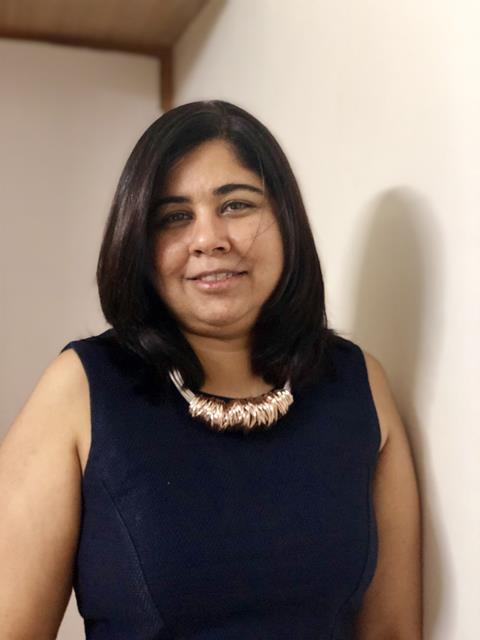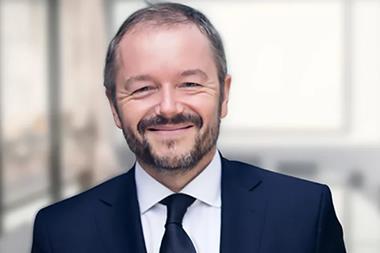From a family of insurance experts, Soni Srivastava was destined for a career in the industry
The reasons individuals choose to work in risk and insurance remain many and varied.
An increasing number actively pursue careers in the sector, some fall into it and there are still a significant number born into it. Through the ability to protect communities and businesses with risk management and risk transfer solutions, the industry appeals to many as being a meaningful choice, regardless of how they got there.
For Soni Srivastava – regional head of corporate insurance, APAC at Deutsche Bank – it seemed like an unavoidable fate.
“My education in insurance started from when I was born as my entire family is in the industry,” she said. “I told my father I would only get into insurance on my deathbed. I was so tired of hearing about it at the dinner table. He had the last laugh though.”
Soni is now also a board member of PARIMA, which will be hosting a conference in Mumbai during 2023.
“I am super excited to have this conference in India,” said Soni. “Risk management is given a lot of importance in India and we have a vibrant risk manager community. There are a lot of smart risk managers in India and they can learn more about best practice at the conference.
“We promise a very Indian experience – vibrant and colourful!”
Permanent stopgap
Soni’s father spent 35 years in the industry, her sister already has as many years and continues to work in insurance. However, Soni first tried her best to push her educational background in another direction.
She went to university viewing a horizon beyond risk and insurance, opting to complete her Bachelor’s in philosophy at the University of Mumbai.
She then completed two masters, firstly in mass communications and public relations at the Xavier Institute of Communications, before gaining an MBA in marketing from NMIMS in Mumbai.
“After I graduated I started working at a software company, but I was based away from my home city. I decided to come home and while I was looking for a new job my father said ‘why don’t you try insurance until you find something else’,” she said.
Soni joined insurance broking giant Aon in 2002, a supposed “stopgap arrangement” where she was for 18 months before staying in the broking space by moving to Marsh in 2004.
“Aon and Marsh were fantastic experiences. The exposure those roles gave me was phenomenal. I was pretty green behind the ears, but was given a large amount of responsibility. That gave me the confidence that I could be a leader within the industry.
“I did about five and a half years of insurance broking before I joined Deutsche Bank in 2007 to set up the insurance department for India,” she said. “I was hired because India was a growing hub for Deutsche Bank and they wanted somebody on the ground here in India.”
APAC expansion
While Soni established the insurance department for Deutsche Bank for just her native India at first, in 2015 she assumed responsibilities for insurance for all of Asia Pacific, encompassing 15 countries at that point of time.
“That remains my current role today, which comprises of looking at all insurances for APAC, from property liability to employee benefits. For the past two and a half years, I have also taken on various new global roles,” said Soni.
“I am now part of the underwriting council, the global liaison for employee benefit insurance policies for Deutsche Bank, and I also manage what we call a risk control function for vendor management.”
This third-party vendor risk management role involves providing insurance support, placing insurance clauses in agreements, ensuring vendors’ contracts are valid, and checking certificates of insurance.
“I am basically doing the risk management as far as insurance is concerned for all third party vendors,” she said. “So my role involves a wide portfolio that has not just insurance placements, but also a lot of risk management.”

Soni Srivastava
Bird’s eye view
Discussing one of her proudest achievements during her 16 years at Deutsche Bank, Soni cited the evolution of her role and the all-encompassing view it provides of the business today.
“I am not doing the same thing I doing 16 years ago, we have created an entire ecosystem of how insurance gets managed. Risk management and insurance has to take an organisational view,” she said.
“You have to work closely with all areas of the business, from those working in property to everyone in HR. In the end, you are looking at risk for everyone – you need a bird’s eye view of risk across the organisation and be able to demonstrate the value that insurance can provide.”
Soni said she feels greatly rewarded by being challenged every day in her role. “There is never a dull day. There can be frustrating days, but never dull.
“APAC is such a diverse group of countries. In Europe or Central America, there is some measure of homogeneity, but in APAC every country is different. The regulations are different and the way the policies are written also varies,” she said.
Local challenges
A country of nearly 1.4 billion people and the world’s fifth largest economy, India presents a unique set of challenges in risk and insurance.
“In India, currently lots of people are concerned about cyber. This has always been a major risk, but post-pandemic there is a completely different outlook. Now it is the top concern of every Board, especially with hybrid working and stressed employees are not always as diligent about what they open and click,” she said.
Soni noted the recent cyber-attack on the All India Institute of Medical Sciences, one of the major hospitals in New Delhi, left patients unable to register for appointments while doctors could not access medical records.
“The hospital servers were down for more than a week. So the threat from cyber is increasing on an exponential basis.
“Elsewhere, India is also very concerned about ESG (Environmental, Social, and Governance) and Boards are being held up to extremely high standards, alongside the various ongoing geopolitical issues such as the Ukraine war,” she said.
Two countries, one company
There might be over 4,000 miles separating Germany and India, but Soni is acutely aware of the nuances of managing the affairs of a German company in India.
“There are some general peculiarities of working with a German company. For example, insurance premium tax is a very German area, alongside working with an in-house insurance broker on such areas,” she said.
“Deutsche Bank has an in-house broker who places all our master policies, but elsewhere in the world we use Marsh as a broker. That is a challenge as you need to have your risk and insurance philosophy mirrored in every country to ensure a standardised approach.
“Otherwise, German employers are committed to making sure that their employees are treated fairly and have plenty of opportunities. They make sure they have good, trustworthy people in place, and then empower them to succeed. There is no micromanagement in my day-to-day work.”
Future plans
With a fresh year just beginning, a new dawn presides over several years of difficult global risk management, from the pandemic to the return of war in Europe.
“Looking ahead, I think the various geopolitical concerns are here to stay. If you take a view of the global political landscape, there are bubbling issues everywhere. From Asia to Africa, something is going on,” said Soni.
“Climate change is definitely going to be a concern too, at least for the next 10 years, if we are not smart enough to get solutions. I also think People Risk is going to be a major concern, with issues such as depression and anxiety causing trillions of dollars of loss in monetary terms.
“Finally, cyber is also not going anywhere. This is the easiest form of criminal activity – people can do it sitting out of a basement anywhere in the world. So whether it is financial attacks or malicious damage, that is going to continue.”




















No comments yet